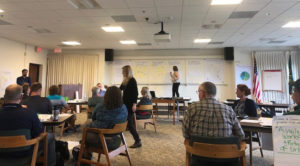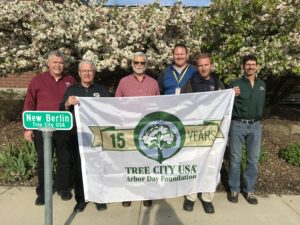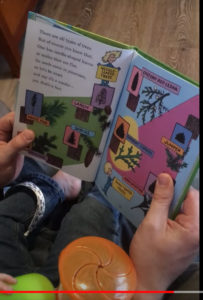 Many Wisconsin communities found creative and resourceful ways to celebrate Arbor Day this year. These celebrations included drive-through tree giveaways, videos, art contests, games and puzzles, self-guided tree walks, small in-person celebrations and tree planting following social distancing guidelines, and more! Here is a sampling of the Arbor Day events that took place in Wisconsin this spring:
Many Wisconsin communities found creative and resourceful ways to celebrate Arbor Day this year. These celebrations included drive-through tree giveaways, videos, art contests, games and puzzles, self-guided tree walks, small in-person celebrations and tree planting following social distancing guidelines, and more! Here is a sampling of the Arbor Day events that took place in Wisconsin this spring:
Adams: The city of Adams held a celebration on April 16th. Mayor Roberta Pantaleo read the Arbor Day Proclamation, and City Forester Joel Fell and another public works employee planted two trees in Burt Morris Park and four trees along boulevards.
Cedarburg: Please follow this link to read how Cedarburg Green celebrated its Year of the Tree despite Covid-19.
Continue reading “Arbor Day 2020: Celebrating trees in a time of social distancing”

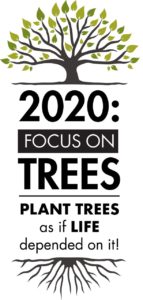
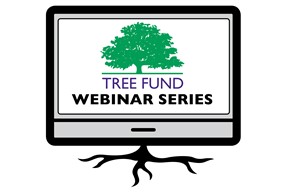 Check out the six upcoming webinars/webinar series listed below. Especially during this time of social distancing, webinars are a great training opportunity. Some of them even offer ISA CEUs when watched live (recordings of past webinars are also available but do not offer CEUs).
Check out the six upcoming webinars/webinar series listed below. Especially during this time of social distancing, webinars are a great training opportunity. Some of them even offer ISA CEUs when watched live (recordings of past webinars are also available but do not offer CEUs).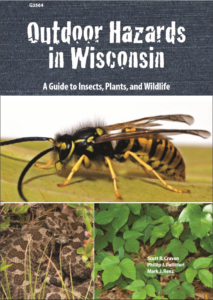
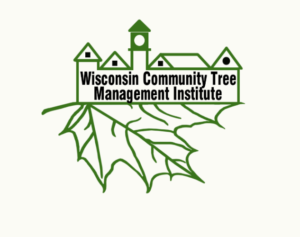 Wisconsin Community Tree Management Institute (CTMI) is a unique training experience designed for municipal staff with tree management responsibilities but without a strong background in urban forestry. The program is ideal for staff who spend just part of their time dealing with trees. Conversely, those with a background in urban forestry but new to management, will also find it useful. CTMI consists of approximately 38 instruction hours and requires students to complete an out-of-classroom project.
Wisconsin Community Tree Management Institute (CTMI) is a unique training experience designed for municipal staff with tree management responsibilities but without a strong background in urban forestry. The program is ideal for staff who spend just part of their time dealing with trees. Conversely, those with a background in urban forestry but new to management, will also find it useful. CTMI consists of approximately 38 instruction hours and requires students to complete an out-of-classroom project.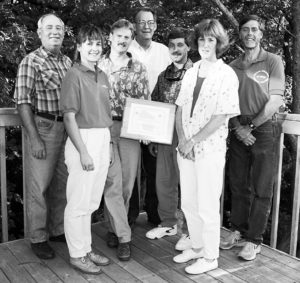 The history of the Wisconsin DNR Urban Forestry program is closely tied to the history of urban forestry in the United States. Although the term ‘urban forestry’ did not come into use until 1965, the concept of an integrated approach to the management of the urban forest ecosystem began to take shape as early as the 1930s. The devastation caused by diseases such Dutch elm disease, phloem necrosis, and oak wilt was a driving force in the development of the field of urban forestry. The term ‘urban forestry’ was first used in 1965 at the University of Toronto to describe a graduate student’s research on the successes and failures of municipal tree planting projects in Toronto. The term was quickly adopted in the United States, where urban forestry had already begun to grow into a national movement. (Source: Mark Johnston, “A Brief History of Urban Forestry in the United States,” Arboricultural Journal 1996, Vol. 20, pp. 257-278.)
The history of the Wisconsin DNR Urban Forestry program is closely tied to the history of urban forestry in the United States. Although the term ‘urban forestry’ did not come into use until 1965, the concept of an integrated approach to the management of the urban forest ecosystem began to take shape as early as the 1930s. The devastation caused by diseases such Dutch elm disease, phloem necrosis, and oak wilt was a driving force in the development of the field of urban forestry. The term ‘urban forestry’ was first used in 1965 at the University of Toronto to describe a graduate student’s research on the successes and failures of municipal tree planting projects in Toronto. The term was quickly adopted in the United States, where urban forestry had already begun to grow into a national movement. (Source: Mark Johnston, “A Brief History of Urban Forestry in the United States,” Arboricultural Journal 1996, Vol. 20, pp. 257-278.)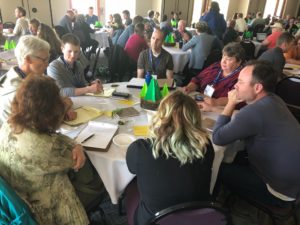 The Urban Forestry Team provides guidance, training, information, funding and professional connection opportunities to municipal foresters and other professionals to achieve sustainable urban forestry management. In a (hickory) nutshell, our work falls into the following five categories:
The Urban Forestry Team provides guidance, training, information, funding and professional connection opportunities to municipal foresters and other professionals to achieve sustainable urban forestry management. In a (hickory) nutshell, our work falls into the following five categories: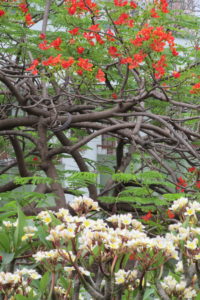 “What is it about this place?” I wondered. “Why does this city feel so harsh, so disheartening?”
“What is it about this place?” I wondered. “Why does this city feel so harsh, so disheartening?”